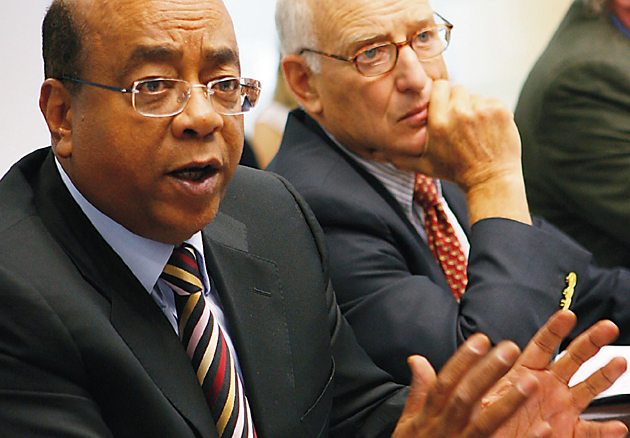Africa, Business Maverick, Politics
SA slides, former war zones fly in Ibrahim Index

It's become one of the most authoritative measures of governance, and it has some sobering news for South Africa, though some other countries will be happy with their improvement.
South Africa went from fifth to ninth place on the Mo Ibrahim governance Index thanks to lower scores for civil rights, political rights and the rule of law. The problems are easy to fix, however. All SA needs to do is solve crime, poverty and income inequality, and it will be top of the pile again.
Island states once again show that the phrase “island paradise” isn’t overdone. Mauritius tops the index, followed by the Seychelles. Cape Verde and Sao Tome & Principe are also in the top ten.
Regionally – and no surprises here – Central Africa ranked stone last. Second worst off is East Africa, then West Africa, then North Africa, with Southern Africa as number one.
The big winners were post-conflict states: Liberia, Angola, Burundi and Sierra Leone. Zimbabwe continues to fall rapidly (national-unity government notwithstanding) and Somalia remains at the very bottom of the table.( Who precisely did the measuring in that country is a question perhaps best left unasked – as well as unanswered.)
The index attempts to measure and evaluate delivery of public goods and services (by both government and non-state actors) over 84 indicators of governance. These are grouped in five major areas: Safety and Security, Rule of Law, Participation and Human Rights, Sustainable Economic Opportunity, and Human Development. For the first time, all 53 African states receive rankings based on totals across the five categories.
In response to methodological criticisms about the index, the 2009 version makes use of a new framework for assessing governance and brings in 2008 data.
The index does have its critics. Some scholars have questioned the effectiveness of the index, citing issues with the reliability of the data as well as the need for civil society to engage with its results for the data to be used as intended. Too often, civil society does not yet exist on the continent as a strong, effective non-governmental force. Other critics note the index does not take into full account the gradual growth of these very forces in many parts of the continent via its measures.
Read more: Mo Ibrahim Foundation
By Brooks Spector

















 Become an Insider
Become an Insider